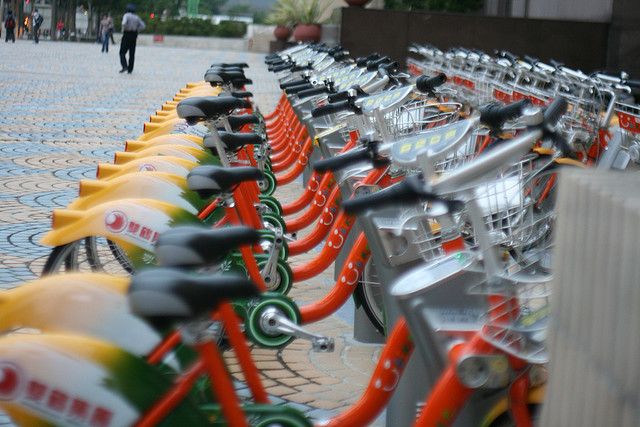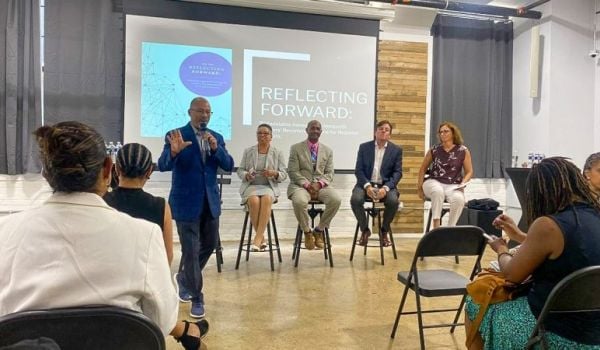It was only in the past two years that the first large-scale bike share systems came to the U.S.—Minneapolis, Washington, D.C. and Denver in 2010, and Miami Beach and Boston in 2011. This summer Chicago and New York City have programs set to open, and the latter will be the largest in the country: 10,000 bikes at 600 stations. Even Oklahoma City is on track to install a bike share system in May.
Philadelphia, with its density, grid layout, flat topography, large population of university students and existing population of bike commuters (first in the country out of the top 10 biggest cities) is a prime candidate for bike share. So why hasn’t it happened yet?
The conversation began early enough in Philadelphia, with a Bike Share Forum in 2008. The next big move came in February 2010, when a 95-page feasibility study found that Philadelphia was supportive of a program and suggested a multi-phased implementation plan, with each subsequent phase expanding the system’s service area. The first phase, concentrated in Philadelphia’s core, would require 1,750 bicycles and cost $4.4 million.
A letter in response to the feasibility study, from the Mayor’s Office of Transportation and Utilities (MOTU), highlighted a few concerns with the outline of the suggested program including the price tag, the infrastructure investments it would entail, the need for behavior changes in motorists and the associated liability issues. At the time, bike share programs in Boston and Minneapolis were about to go online, and in the letter the city’s stance was clearly one of watch and wait.
Much has changed in two years. The number of bike share programs in the country grew from 8 to 18, and those numbers do not programs to start in 2012: New York City, Chicago and Baltimore. Private operators are increasingly taking on responsibility with regards to liability and fundraising—though in Chicago, the program is also assisted by TIGER (Transportation Investment Generating Economic Recovery) money.
Philadelphia has over 200 miles of bike lanes in place, and an existing population of bicyclists. A Request for Proposals to allow a third party vendor to manage a system, with input from the city as to siting, is the next step toward bringing bike share to Philadelphia. Conversations with Alta Bike Share and B-Cycle (the operators chosen for Chicago, New York and Baltimore) have indicated that they see Philadelphia as a profitable location. Nonprofits like the Bicycle Coalition of Greater Philadelphia and Bike Share Philadelphia would be eager to lend their support.
One issue that remains is a question of fundraising. MOTU has expressed concerns, with Chief of Staff Andrew Stober explaining that “the challenge for Philadelphia remains bringing together the millions of dollars needed to launch a program,” though he conceded that the study demonstrated “the potential for a successful bike share program.” Even with continued concern over fundraising, the office has recently taken a step toward making bike share a reality by creating a new bike share coordinator position, which should be posted in the next month.
Bike share in Philly is not inevitable, though. In addition to financial support—which hopefully can be found from the networks of hospitals, universities and locally invested businesses—there’s a need for persistent advocacy. Aaron Ritz, MOTU’s active transportation coordinator, further explains his department’s stance as that of “a government agency…asked to be responsive to the demands of the citizens of the city.” He added: “If there is a strong demand for a service, such as providing new bike lanes, or even bike sharing, we can respond more easily and ultimately be more successful in implementing those measures than if we came up with something that was only top-down.”
Bike share is a healthy way to reduce emissions, get citizens active, provide an alternate mode of transportation and supplement the existing transit network. Philadelphia is ripe for a program, and its government is coming to realize this.
Rachel Aland is a Master of City Planning Candidate at the University of Pennsylvania and a part of the Liberty Bike Share program. She hopes, one day, a bike share program makes it to her home state of Alabama.
















